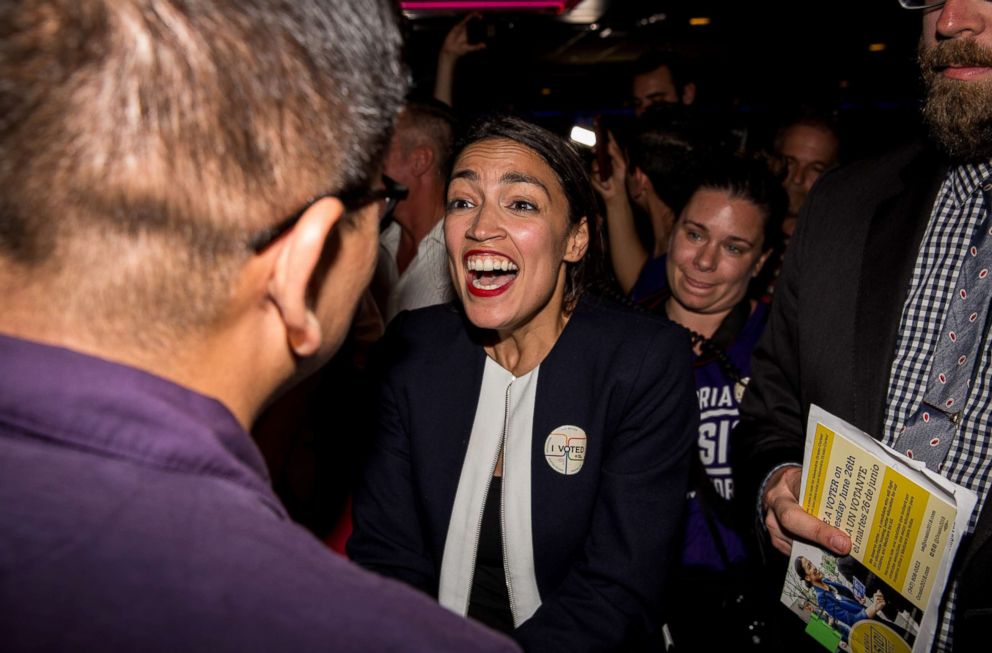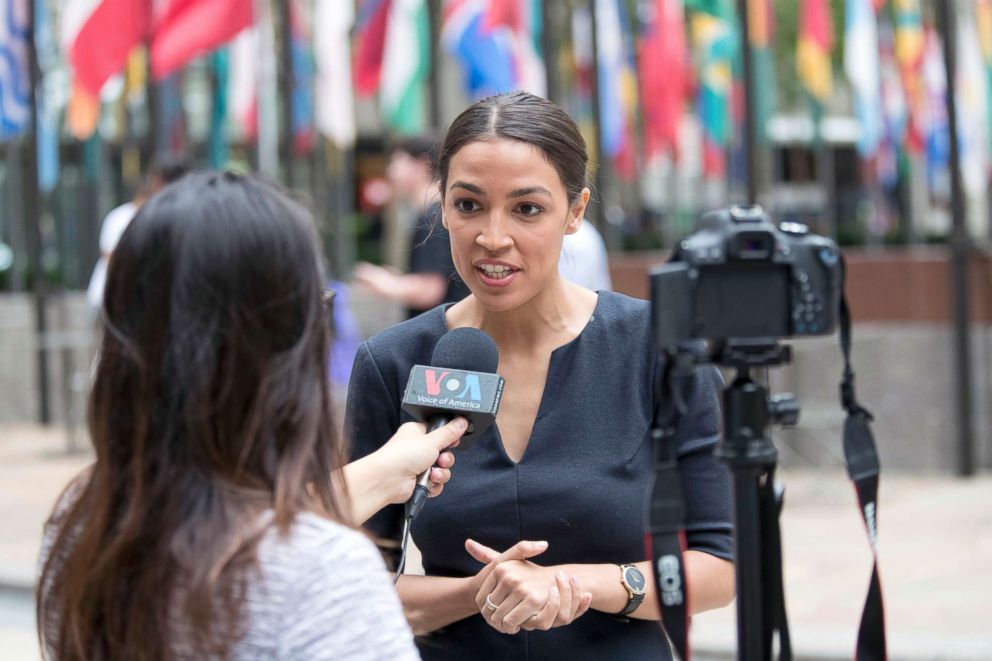
This article is more than
7 year old“Millennials -- they think of us as punk kids, but we’re in our late twenties, we’re in our thirties, and we’re the ones that are going to have to deal with climate change, with automation, with a changing economy,” she told hosts, ABC News' chief White House correspondent Jonathan Karl and political director Rick Klein. “We deserve to have a seat at the table.”

Ocasio-Cortez, who less than a year ago was earning money by waiting tables while she launched her winning campaign, said that the outcome came as a surprise.
“It was a complete shock,” she said of her victory over Crowley, the fourth-ranking House Democrat.
(MORE: In historic upset, 28-year-old Alexandria Ocasio-Cortez unseats 4th ranking House Democrat Joe Crowley)However, she sees the defeat as fitting into a growing movement, linked crucially to the economic concerns of young Americans.
“Working class Americans are ready and willing and eager to hear a message of economic, social, and racial justice,” Ocasio-Cortez said.
Although commentators have often emphasized the candidate’s appeal in one of the most diverse districts in the country -- she is a third-generation Bronx woman of Puerto Rican descent -- Ocasio-Cortez often leads with the language of class interests, in addition to race and gender.

She has repeatedly rejected the supposed divide between economic concerns and “identity politics,” a frequently invoked diagnostic tool for Democratic races, as a false dichotomy. Instead, Ocasio-Cortez stresses class as just one more category of “intersectionality,” or the compounding effects of multiple categories of marginalization.
“This is about weaving in an intersectional message of an economic and social agenda that is going to ensure that families are safe, and also can prosper economically, not just in the years to come but for future generations,” she said.
Read More (...)